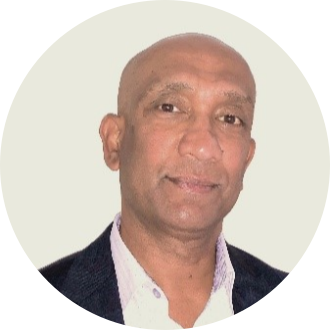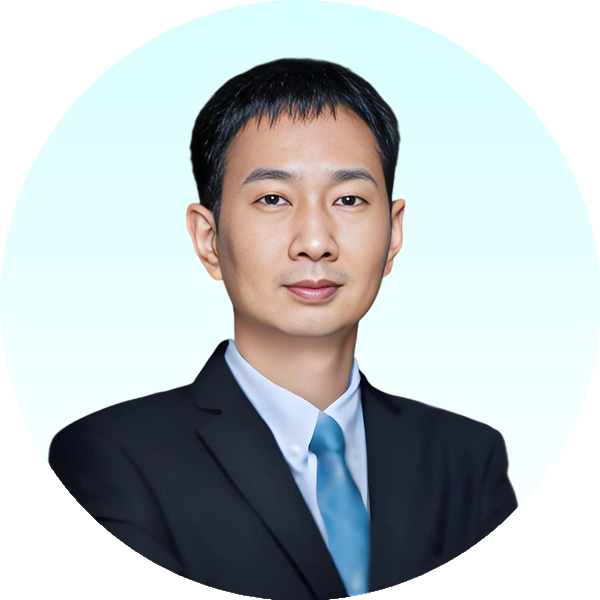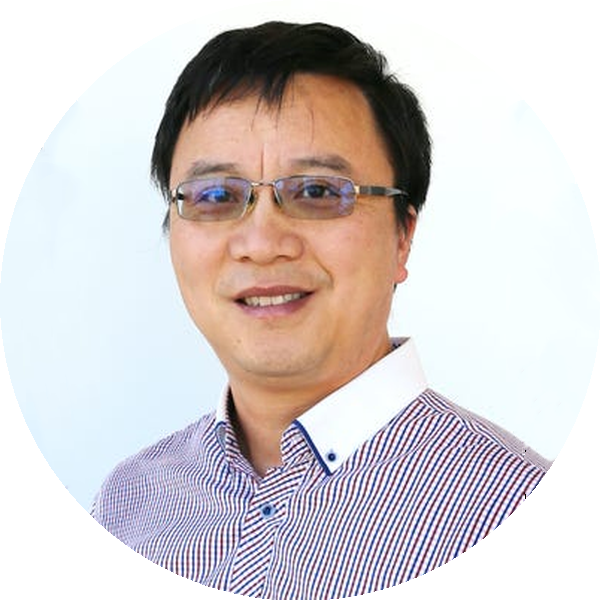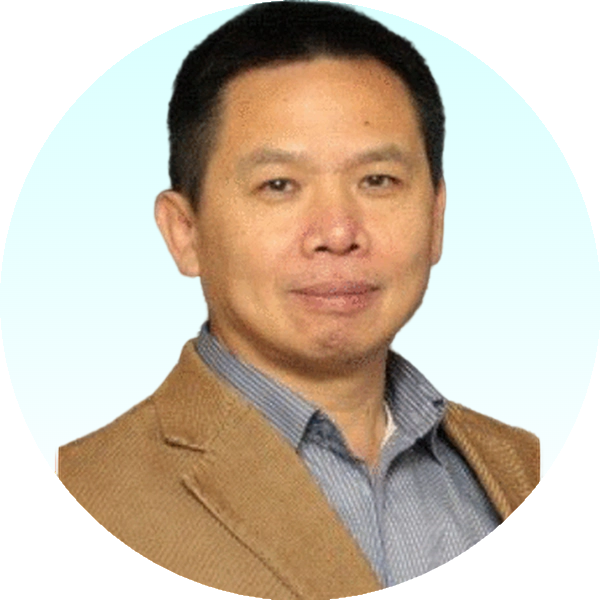ICPES - 2025 the 15th International Conference on Power and Energy Systems
Keynote Speakers
|
Udaya K. Madawala graduated with a B.Sc. (Electrical Engineering) (Hons) degree from The University of Moratuwa, Sri Lanka, and received his PhD (Power Electronics) from The University of Auckland, New Zealand as a Commonwealth Doctoral Scholar. At the completion of his PhD, he was employed as a Research and Development Engineer by Fisher & Paykel Ltd, New Zealand, to develop new technologies for PM motor drives. At present as a Full Professor in the Department of Electrical, Computer & Software Engineering at University of Auckland, New Zealand, he leads a group of researchers focusing on a number of power electronics projects that are related to energy and wireless EV charging systems for V2X applications. Udaya is a Fellow of the IEEE, and has both industry and research experience in the fields of power electronics and energy. He has served both the IEEE Power Electronics and Industrial Electronics Societies in numerous roles, relating to editorial, advisory, conferences, administrative & technical committees and chapter activities. He was the General Chair of the 2nd IEEE Southern Power Electronics Conference (SPEC)- 2016, held in New Zealand, and is also the Chair of SPEC Steering Committee and a Distinguished Lecturer of the IEEE Industrial Electronic Society. He is the recipient of the IEEE PELS Milan M. Jovanović Award for Power Electronics Emerging Technology and the University of Auckland Research Excellence Medal in 2024. Udaya, who has over 300 journal and conference publications, holds a family of global patents related to wireless power transfer (WPT) technology and power converters, and is a consultant to industry.
|
|
| Speech Title: EV Charging : Challenges & Solutions
Abstract: Electric vehicles (EVs) reduce air pollution, and are ideal for sustainable living. However, the high uptake of EVs also poses some technical challenges. These include the demand for increased levels of EV charging infrastructure, issues associated with charging infrastructure planning and offering charging services, and the grid impacts due to large-scale charging demands that compromise the stable and economic operation of the power grid. To address these technical challenges, it is crucial to deploy charging infrastructure strategically and operate charging services properly. This seminar discusses these technical challenges, highlighting the technical problems, and presents the solutions that have been proposed. The seminar concludes with new research directions in this area to promote further research. |
||
|
Dr. Du Xiong, is a professor of School of Electrical Engineering, Chongqing University, China. Dr. Du obtained his Ph.D degree in the same school, same university. He is the Vice Dean of School of Electrical Engineering, Chongqing University, the Vice Chairman of China Power Supply Society. He is an Associate Editor of IEEE OJPELS and Co-EIC of CPSS TPEA. He is the Recipient of National Outstanding Youth Fund. Dr. Du has been engaged in the research on the stability of renewable energy integration systems and the reliability of power electronic system. He has published more than 100 peer reviewed papers, issued more than 20 patents..
|
|
| Speech Title: Modeling and Control of Stability in Renewable Energy Generation System
Abstract: The interaction between renewable energy converter and power grid is easy to induce oscillation accidents. The modeling, analysis and control technology of stability is an effective way to clarify the oscillation mechanism and eliminate the oscillation risk. Aiming at the stability problem of renewable energy generation system, a modeling method based on self-admittance and accompanying admittance is proposed, and the generation mechanism of dual-frequency harmonic is revealed. The stability analysis method under variable operating conditions is proposed, which provides a technical means for the stability analysis of renewable energy under variable operating conditions. An adaptive stability control method is proposed, which provides a technical means to eliminate the oscillation risk under multiple operating conditions. |
||
|
Yun Wang received his B.S. and M.S. degrees in Mechanics and Engineering Science from Peking University in 1998 and 2001, respectively. He went to the Pennsylvania State University where he earned his Ph.D degree in Mechanical Engineering in 2006. Dr. Wang joined the Mechanical and Aerospace Engineering department at the University of California, Irvine in 2006. He has produced over 100 publications in PEM fuel cell, Li-air battery, and other energy systems, including three books on PEM Fuel Cell and one on Thermal Fluid Science. Dr. Wang served as Track chair/co-chair, session chair/co-chair, conference chair and committee member for many international conferences on fuel cell, thermal energy, and machine learning. Dr. Wang received 2018 Reviewer of The Year from the Journal of Electrochemical Energy Conversion and Storage and is currently Professor at the UC Irvine, ASME fellow, RSC fellow, and associate editor for the journal of heat and mass transfer. |
|
| Speech Title: Physics-informed AI methods for next-generation proton exchange membrane fuel cell R&D
Abstract: Proton exchange membrane (PEM) fuel cells can play a pivotal role in a sustainable society through directly converting the chemical energy stored in hydrogen fuel to electricity at high efficiency (as high as 65%). Artificial intelligence (AI) has demonstrated significant efficacy in the research and development (R&D). AI methods have been proposed to optimize fuel cell structure, operating condition, porous materials, and surface properties by considering multi-physics transfer in fuel cells. In this talk, I will discuss the main physics in fuel cells, including power transients [1], cold-start fundamentals [2], electron/proton transfer [3], thermal management [4], and two-phase dynamics [5]; and explore advanced AI methods for fuel cell design, including artificial neural networks (ANNs), convolutional neural networks (CNNs), generative AI, and genetic algorithms (GAs) [6]. Future directions to advance next-generation fuel cell technology will be discussed. |
||
|
Dr. Zhiwei Gao is the Fellow of IEEE. He was recipient of the Royal Academy of Engineering/Leverhulme Trust Research Fellowship. He is the Co-Editor-in-Chief for IEEE Transactions on Industrial Informatics, Senior Editor for IEEE Access, Section Editor-in-Chief of Processes, and Associate Editor for IEEE Transactions on Systems Man and Cybernetics: Systems. He was the Associate Editor for IEEE Transactions on Industrial Electronics, IEEE Transactions on Industrial Informatics, IEEE Transactions on Automatic Control, and IEEE Transactions on Control Systems Technology. His research interests include diagnosis and control, power electronics, electric vehicles, wind turbines, wave energy converters and offshore energy. |
|
| Speech Title: Fault Diagnosis and Tolerant Control for Wind Turbine Systems
Abstract: Wind turbines dominate the renewable energy industries. Wind turbines are expensive, which are prone to faults due to age and harsh environments. Therefore it is important to improve the reliability and safety of wind turbines by using monitoring, diagnosis and tolerant control techniques. In this talk, various diagnosis and tolerant control approaches for wind turbine systems are introduced. |
||



